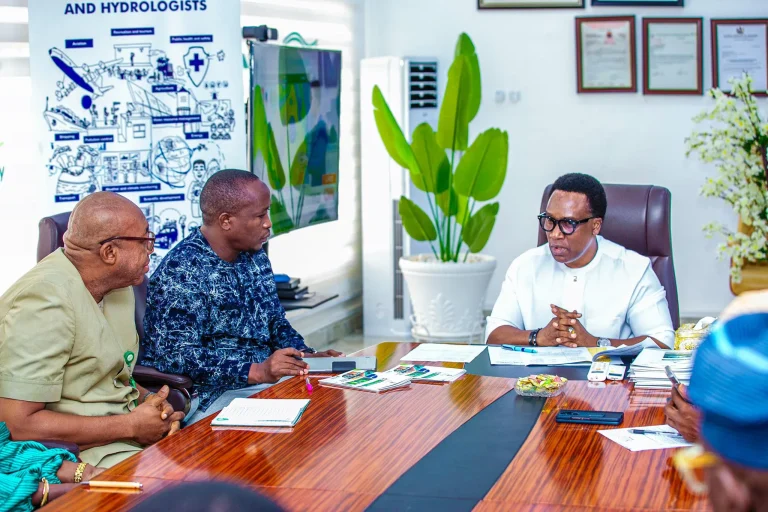The Nigerian Meteorological Agency (NiMet) and the Permanent Interstate Committee for Drought Control in the Sahel (CILSS) have deepened their collaboration to strengthen Nigeria’s Food and Nutrition Security Information System (FNSIS), in a renewed push to tackle food and climate-related challenges.
This was the thrust of discussions during a high-level courtesy visit by a CILSS-led delegation to NiMet headquarters in Abuja. The visit is part of the ongoing PRISISAN Project—an initiative aimed at building robust and innovative information systems to manage food and nutrition crises across the Sahel and West Africa.
Prof. Charles Anosike, Director General and CEO of NiMet, and Nigeria’s Permanent Representative with the World Meteorological Organization (WMO), reaffirmed NiMet’s strategic role in delivering timely weather and climate services. He noted that the agency’s seasonal climate forecasts—produced in partnership with the Federal Ministry of Agriculture and Food Security—have helped local farmers make informed decisions, boosting yields and reducing risks.
“The urgency of today’s food and climate crises demands a coordinated, science-based response,” Prof. Anosike said. “Through NiMet’s National Framework for Early Warning and Early Action—developed with WMO’s guidance—we are enhancing national coordination to prevent duplication, strengthen preparedness, and build resilience.”
He added that the framework would be shared widely among relevant institutions, including those working in disaster risk reduction, food security, and climate resilience, to support a unified national response to emerging threats.
Leading the CILSS team, Mr. Williams Massaoud applauded NiMet’s contributions to climate services and stressed the importance of integrating meteorological data into broader food and nutrition security systems. He noted that the PRISISAN mission includes key partners such as the Food and Agriculture Organization (FAO), World Food Programme (WFP), Federal Ministry of Agriculture and Food Security, the Cadre Harmonisé Taskforce, and other critical stakeholders.
In a closing call to action, Prof. Anosike urged all partners to embrace a data-driven, collaborative approach that will not only respond to current food insecurity but also lay the foundation for long-term resilience in Nigeria and the region.


